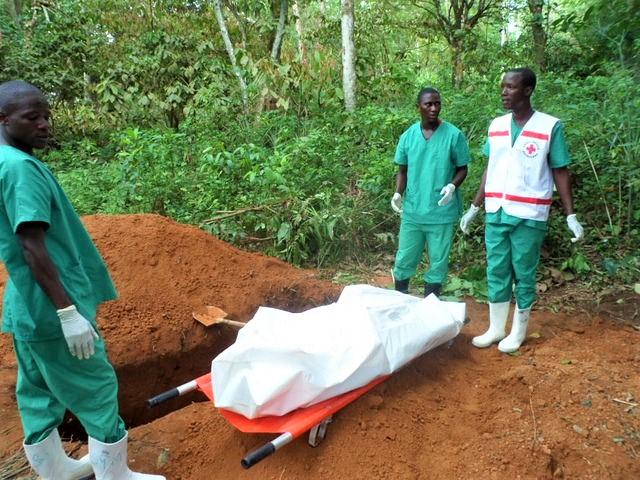In its latest outbreak update, the World Health Organization (WHO) today reported 58 Ebola cases in the Democratic Republic of the Congo (DRC), including 27 deaths, resulting in a case-fatality rate of 47%.
The total number includes 28 confirmed, 21 probable, and 9 suspected cases in three health zones in Equateur province. Three identified cases involve healthcare workers.
The updated tally comes as officials announced that in recent days three Ebola patients being kept in isolation had left a Mbandaka hospital. A WHO official told Reuters that the patients left an isolation ward to travel to a place of worship. One patient was found dead, another returned to the clinic and died shortly after, and the third returned to the hospital and is currently under observation.
The WHO said its workers have redoubled their efforts to trace contacts of patients. The WHO also said it now has a list of 628 people (known contacts to current cases) who will be vaccinated against the hemorrhagic virus.
Mbandaka remains focus of efforts
International health officials have focused on Mbandaka since the first cases were reported in nearby Bikoro on May 8. Situated on the Congo River, Mbabdaka is a bustling city of 1.2 million that bridges rural communities in the DRC to the capital, Kinshasa.
So far, officials have confirmed four Ebola cases in Mbandaka. At least two of those cases had epidemiologic links to cases reported in Bikoro.
The vaccination campaign began in the DRC on May 21 and focused on three patients' "rings" of contacts, including two in Boikoro and one in Wangata, where Mbandaka is located. A total of 7,560 doses of Merck's unlicensed VSV-EBOV Ebola virus vaccine were in country as of May 19, the WHO said.
"Initial vaccination is targeting health workers and community contacts, and it is expected that up to 1,000 people will be vaccinated during this week (21-26 May 2018), first in Mbandaka and then Bikoro and other affected areas," a WHO Africa regional situation report said today.
The WHO also said it had deployed the Early Warning Alert and Response (EWAR) System in Wangata to improve the collection and management of information on cases and contacts. So far, 123 WHO personnel have been deployed to the DRC.
Because of activity in Mbandaka, WHO said they had revised the assessment of public health risk to very high at the national level and high at the regional level. There is still a low international risk.
At this time, the WHO recommends exit screenings at airports and ports on the Congo River.
More UK funds as NIH tests new treatment
Also today, the British government announced that the Department for International Development (DFID) will be providing £5 million ($6.7 million) in funding to the WHO's response plan in the DRC. The money is immediately available for response efforts. Last week, DFID pledged £1 million ($1.3 million) to the WHO.
The WHO and its partners are appealing for $26 million for current response efforts.
Finally today, the US National Institutes of Health (NIH) announced the launch of the first human trial of a new experimental Ebola treatment.
The phase 1 clinical trial will investigate the safety and tolerability of a single monoclonal antibody called mAb114. Researchers developed the monoclonal antibody from an Ebola survivor in 1995, after it was discovered the survivor retained antibodies against Ebola 11 years post-infection.
Studies in non-human primates showed mAb114 was effective in protecting the animals from the Ebola virus. The trial will not expose participants to the Ebola virus.
See also:
May 23 WHO update
May 23 Reuters story
May 23 WHO Africa situation report
May 23 UK government press statement
May 23 NIH news release





















